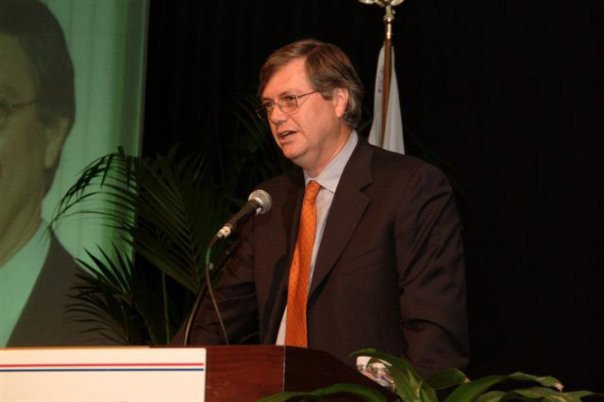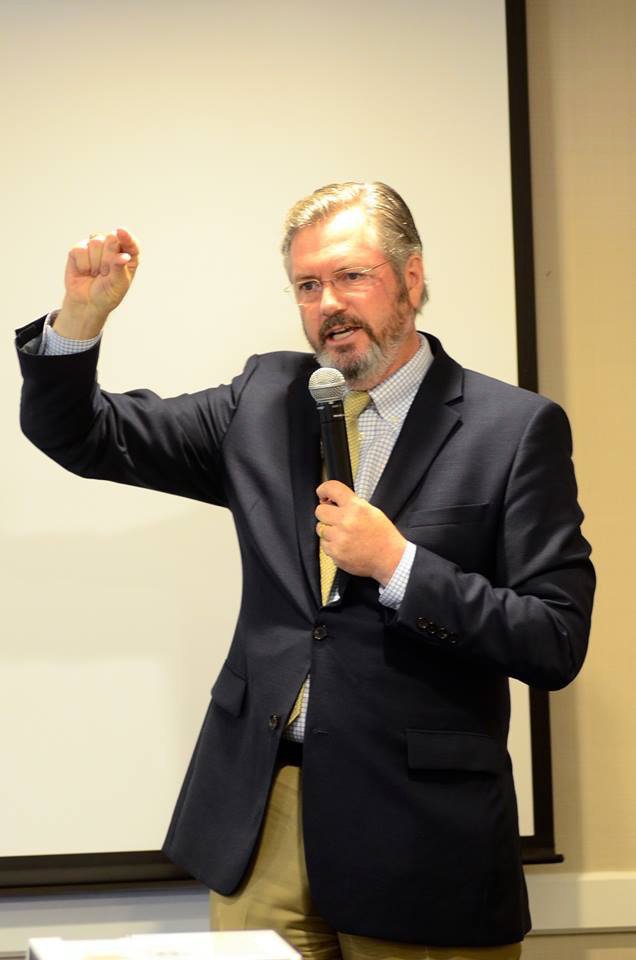Serving the Underserved
On leaving Oxford, Andrew spent ten years with Kleinwort, Benson, a leading British Merchant Bank, including six years in the United States, where he rose to be Senior Vice President of Kleinwort Benson North America. On returning to London, he was asked to become the first Risk Manager and Chief Credit Officer for the bank’s new Securities Division.
In December 1989 he moved permanently to the US to work with his father-in-law, Tom Brundage, and helped build up a successful consumer finance business, focusing on serving the underserved. Over the years he became a spokesman for the consumer finance industry, the chief architect of its public image and messaging, and of its policy of active engagement with regulators and consumer groups.
He was asked to represent the industry on panels organized by groups like CFSI (now the Financial Health Network), NACCA, CSBS, NCSL, Pew Trusts and Advance America, as well as at industry-sponsored events.
Among his accomplishments were the creation of the terms, “installment lending industry,” and the description of its core product, “safe and affordable.” He was the driving force behind reform bills passed in several state legislatures, helping the industry stand firmly on what the great reformer, Arthur Ham, called “the middle ground between laissez faire and annihilation,” instead of falling into oppositional, zero sum or binary modes of thinking, which never serve the interests of actual consumers. He has always held that the two most elements of any worthwhile policy are consumer protection and protecting (and expanding) the consumer’s access to credit that is safe and affordable.
He authored or co-authored several resolutions passed by groups of state legislators like NBCSL, NHCSL and NOBEL Women in pursuit of these goals.
Andrew joined the American Financial Services Association in the early 1990s. He served on its main board for 23 years, was chairman of its Independents Section, chairman of the Association, chair of its Nominating committee and of its industry training program, now known as the EDGE, (formerly the National Institute for Consumer Credit Management). He taught a class at the EDGE’s program at Marquette and later Mercer University on the folly of APR caps for over twenty years. He also served on the board of the AFSA Education Foundation for over 20 years, during which time it developed the outstanding Money$kill financial education program. Money$kill is provided free of charge to schools and adults around the country.
During his time as AFSA Chair, Andrew also helped found the National Installment Lenders Association. In its early years, he was the chief architect of its messaging and principal spokesman when meeting with legislators or the CFPB.
Andrew is a founding Director of the Equitable Growth Fund, along with Dr Rickie Keys. The EGF is concerned with identifying and addressing the unequal availability of critical resources in minority and lower income communities, focusing especially on healthcare deserts, food deserts and credit deserts.
For over twenty years Andrew taught classes every Sunday at local Episcopal churches on a variety of subjects, including Celtic Christianity and the importance of compassionate listening. The Anglican tradition tries to follow what is called the via media, or middle way. It offers a model that is the opposite of what is to be seen in the current, divisive political scene. He believes that common ground is Holy ground.
For fifteen years he also volunteered with the United Way of San Antonio and Bexar County, leading teams that audited charities operating in the fields of child abuse and family violence. He chaired its Families and Communities Division and served on the Fund Distribution Committee.
The techniques he learned at United Way of identifying and measuring actual client outcomes served him well when he acted as Treasurer for his church.




